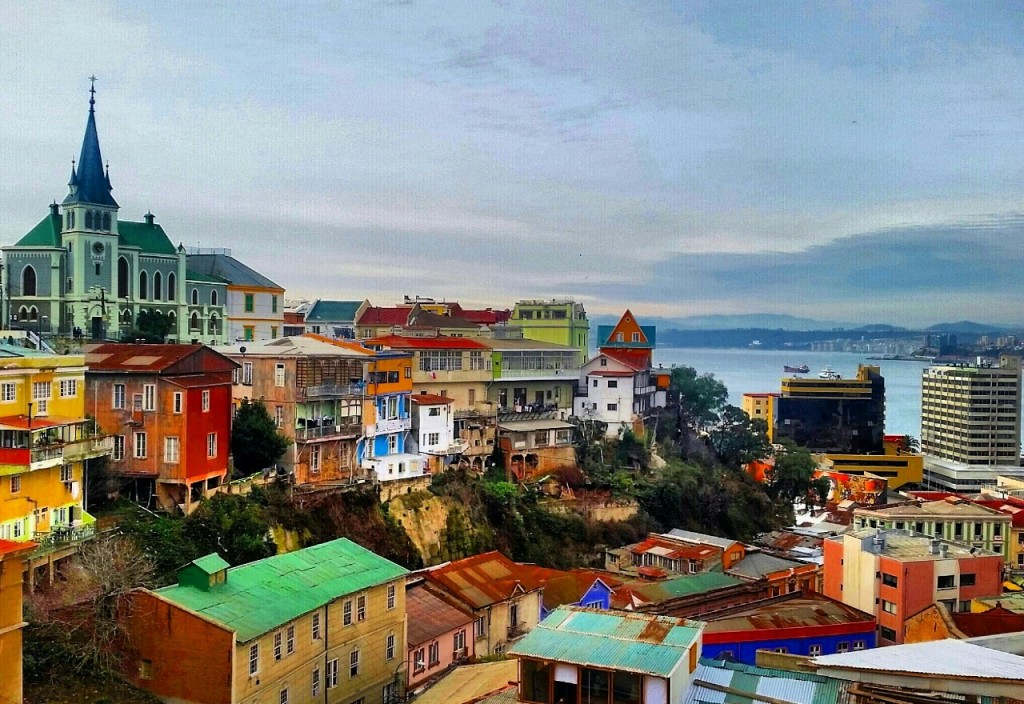During my year abroad in Santiago, Chile, I was fortunate enough to spend two weeks traveling in the south of the country, two months backpacking by myself in neighboring Argentina (with only the backpack I took to class!), and ten days in Peru. I also spent several weekends exploring the Central Region and the town of Valparaiso. During that time, I discovered the world of hostels. From the cozy family business, to the bare bones mountain refuge, passing by the wild party house, hostels may take on many forms but are a must for any backpacker.
Here are the top things that I learned that year about traveling in hostels:
- Location, location, location. While you probably won’t spend most of the day in the hostel, it’s nice to have a centrally located and easily accessible accommodation. You may want to return at various points in the day for a meal, a nap, a shower, or a change of clothes, which is all easier if you’re in walking distance of your hostel.
- Set the guidebook aside. While guidebooks such as the Lonely Planet or Moon have great advice in terms of sights to see and how to visit them, I would not recommend their listing for housing and dining, especially if you’re looking for the budget or authentic option. Search online instead to find the smaller local deals. Hostelworld, Hostelbookers, and Booking (sorted by price) are a few of my favorite websites; some even allow you to make a reservation without a credit card.
- Share a room. A defining feature of a hostel is the ability to share a room with other guests for a reduced rate; many hostels use bunk beds in dorm settings. You may feel uncomfortable at first, until you realize that most of the other guests are just like you: looking for a nice, cheap place to stay. Dorms are a great way to meet new people, share backpacking tips, and maybe even find your next travel buddy!
- Wake up for the free breakfast. Most hostels include a breakfast for each night, but only serve it during specified times in the morning. Even if you’re having a slow day, consider getting up in the morning to take advantage of the free breakfast. Filling up on bread, fruit, and coffee in the morning will help you hold out later or have a smaller (and cheaper!) lunch.
- You get what you pay for. People often have a fear of finding dirty bathrooms, cold water, and bed bugs in hostels. However, while they offer less services than hotels, most hostels are decent, clean, and comfortable. I find online reviews helpful; the truly terrible hostels usually stand out. Sometimes it’s worth it to spend a couple of extra bucks to get a safer and cleaner hostel.
- Lock up your stuff. Most hostels have lockers in the rooms for you to put either your entire backpack or just your valuables. Theft is often a crime of opportunity; locking up your stuff is a quick and easy way to reduce risks.
- Take your time. Try to stay several nights if possible, to get a better feel for the area. It’s tempting to check off as many cities and countries as possible, but moving constantly over long distances is exhausting, expensive, and blurs the individual places together. I personally recommend two to four nights in each spot in order to wander around the markets where the locals shop, to stumble upon the hidden church, to go to the empty free museum on the other side of time, to take a day trip in the surrounding countryside, with plenty of time left over for conversations with fellow travelers.
- Talk to new people. Hostels create the perfect opportunity for you to get outside of your comfort zone and meet new people. With enthusiasm and a shared drink, you might meet people with great tips and hilarious stories, a travel companion for the next part of your tip, a fun group of friends for the evening in town, or maybe even the next important person in your life…







Great Job!
Very useful for any travels